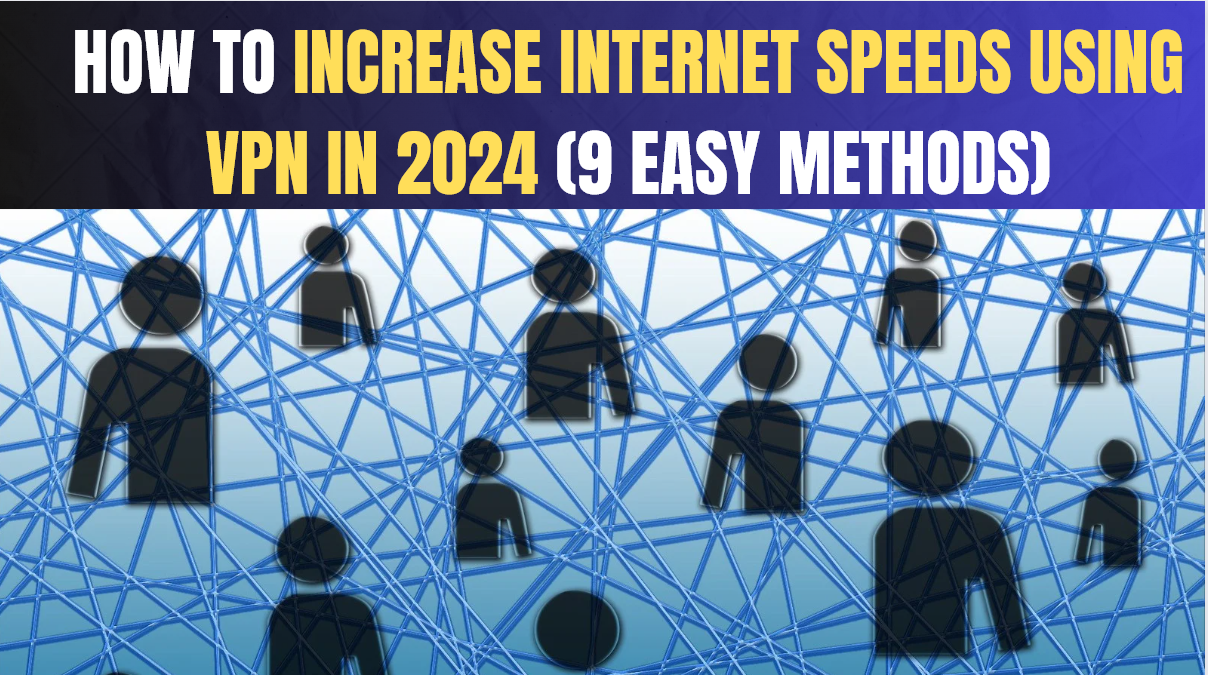In 2024, internet speeds will be more important than ever before. We rely on the internet for many things, from work to entertainment. You need to use a VPN to ensure that your internet speeds are as fast as they can be. A VPN will help speed up your connection and ensure you get the most out of your internet service. In this blog post, we will discuss 9 different methods that you can use to increase your internet speeds using a VPN!
What does a VPN do?
A VPN, or virtual private network, is a tool that helps to encrypt your internet traffic and route it through a different server. This can help to improve your internet speeds for a variety of reasons.
First of all, it can help to reduce congestion on your network. When you use a VPN, your traffic is not going through the same servers as everyone else. This can help to improve your speeds because there is less congestion.

Secondly, a VPN can help to improve your security. When you use a VPN, your traffic is encrypted. This means that it is much more difficult for hackers to intercept your data or steal your information.
Finally, a VPN can help to bypass internet restrictions. If you live in a country where the government is censoring the internet, a VPN can help you to access blocked websites and content.
9 Easy Methods to Increase Internet Speeds Using VPN in 2022
Choose a different VPN server.
One of the best ways to improve your VPN speeds is to choose a different VPN server. If you’re using a shared server, there is a good chance that other users are impacting your speeds. By choosing a dedicated server, you can get much better speeds. Dedicated servers are usually more expensive, but they’re worth it if you need fast speeds.
Change your VPN protocols.
Another way to improve your VPN speeds is to change your VPN protocols. If you’re using an older protocol, like PPTP, your speed will likely be slower. Newer protocols, like OpenVPN, offer much better speeds. If you’re unsure which protocol to use, contact your VPN provider and ask for their advice.
Enable Split Tunneling
Split tunneling is a feature that allows you to route some of your traffic through your VPN and some of it through your regular internet connection. This can be a great way to improve your speeds because it allows you to use your full bandwidth. Not all VPN providers offer split tunneling, so check before you sign up.
Opt for a different VPN provider
If you’re unhappy with your current VPN speeds, you may consider switching to a different VPN provider. Some providers are faster than others, so it’s worth researching to find the best one for you.
Change from a wireless connection to a wired connection
If you’re using a wireless connection, your speeds are likely to be slower than if you’re using a wired connection. This is because wireless connections are subject to interference from other devices. If you have the option, switch to a wired connection to get the best speeds.
Close unnecessary background apps
Most of the time, your internet speeds are slow because you have too many apps running in the background. Close any unnecessary apps and programs to free up some bandwidth.
Temporarily disable your antivirus and firewall.
If you have an antivirus or firewall program installed on your computer, try temporarily disabling it to see if that improves your speeds.
Reboot your device
If you still have trouble with your speeds, try rebooting your device. This will clear up any temporary issues that may be causing problems.
Double-check your internet connection
If you’re still having trouble, the problem may be with your internet connection. Check to ensure that your connection is stable and that you’re getting the speeds you’re supposed to.
Final thought
If you’re having trouble with your VPN speeds, there are a few things you can try to improve them. Choose a different server, change your protocols, or switch to a different provider. If all else fails, reboot your device or check your internet connection. That’s all it takes to get the best speeds!

